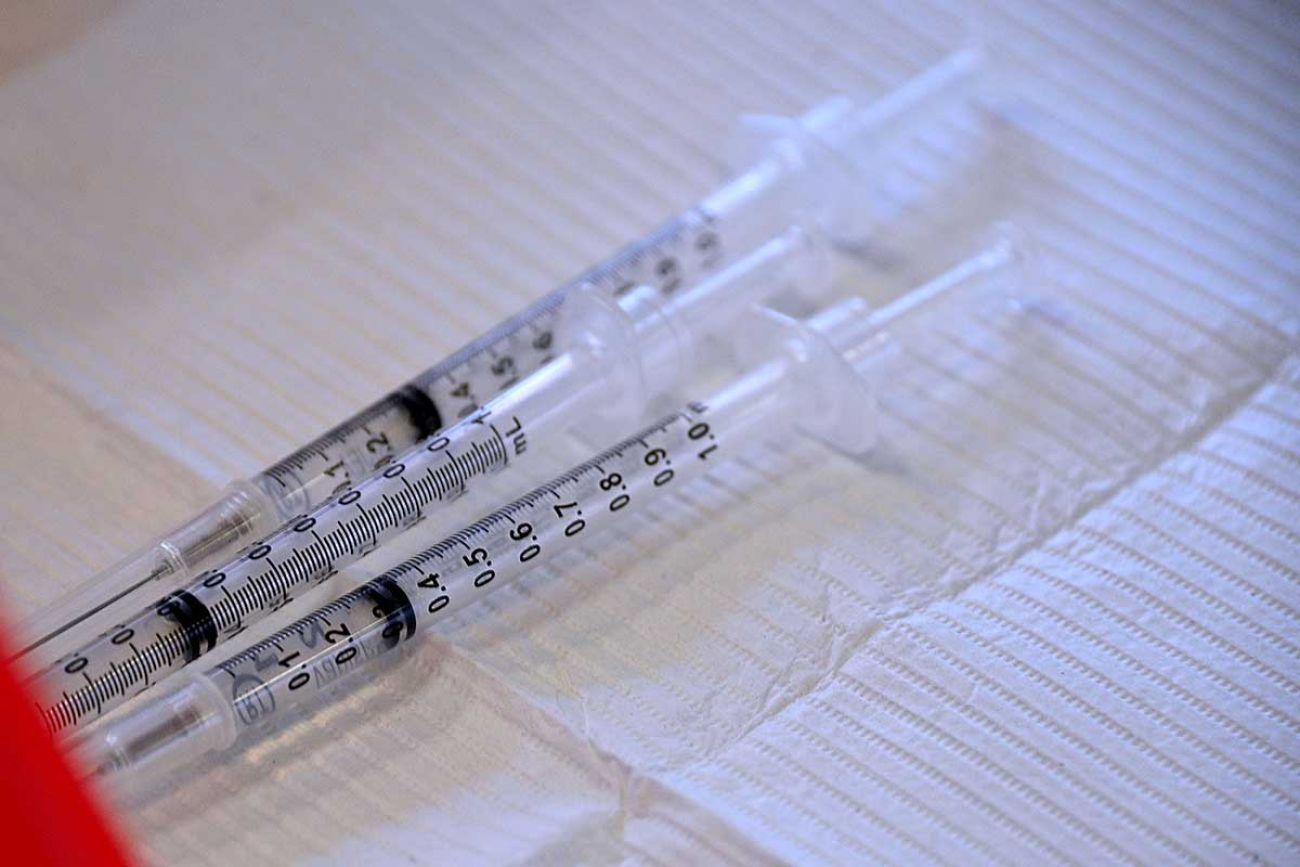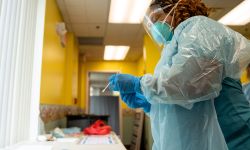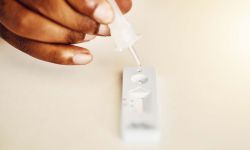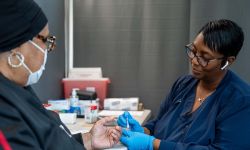Is the Michigan vaccine lottery working? Depends how you define success.

Aug. 3: Michigan spent $5M on vaccine lottery, fell well shy of 70 percent goal
July 22: Up to 400K COVID vaccines set to expire in Michigan. Few want them.
July 14: Michigan vaccine lottery has first winners. But inoculation rates still flat.
As Michigan doles out $50,000 in daily lottery winnings to encourage people to get a COVID-19 vaccine, health officials across the state told Bridge Michigan they have seen no evidence of a surge in vaccine interest.
Instead, vaccination rates continue to ebb, they said.
“We did not see a noticeable change at all of people coming in for their first dose,” said Andrew Cox, health officer for Macomb County’s health department. “We haven’t seen an uptick in walk-ins or appointments.”
Related:
- Michigan hopes $5 million vaccine lottery inspires more people to get shots
- Delta variant is increasing in Michigan, prompting coronavirus surge fears
- Henry Ford Health System to require workers to get COVID-19 vaccine
Officials in the eastern Upper Peninsula, southwest Michigan and at a clinic in Detroit offered similar findings Wednesday. The health officer in Calhoun County told Bridge few people coming in recently for vaccines were even aware of the lottery.
“We had an open drive-through clinic last night in a parking lot in Battle Creek and we asked all who attended if they have heard of the (lottery) program and nobody had heard of it,” said Eric Pessell, health officer of Calhoun County.
“I would say they have a marketing challenge,” Pessell said of the state’s vaccine lottery campaign in an email to Bridge.
Whitmer announced the lottery July 1 in an effort to jump-start flagging vaccination rates. The state intends to give away $5 million in total prizes, including 30 daily prizes of $50,000, a $1 million prize and a $2 million prize. For those receiving vaccines ages 12 to 17, there are nine four-year college scholarships.
On Tuesday, Whitmer touted the fact that 1 million Michigan residents had signed up for the lottery, which is open to anyone who has received at least their first dose of a COVID-19 vaccine. That includes people who received a vaccine before the lottery was announced, making the sign-up total a less reliable indicator of the lottery’s success.
The state has not said whether the lottery has spurred new vaccinations. Neither the governor’s office nor the Michigan Department of Health and Human Services has yet responded to Bridge questions about vaccinations since the lottery’s announcement, including inquiries early Wednesday.
Local public health officials contacted by Bridge said they’ve not seen an increase in interest. In eastern Upper Peninsula, the lottery did not have a noticeable effect, said Kerry Ott, spokesperson for the LMAS District Health Department, which covers Luce, Mackinac, Alger and Schoolcraft counties.
While vaccine demand earlier this year was "like Niagara Falls, it's more like a leaky faucet now — drip-drip-drip."
Study: Vaccine lotteries might not work
Nationwide, 67.1 percent of adults 18 and over have gotten at least one dose of the vaccines; in Michigan, the rate is lower at 62.6 percent.
In announcing the Michigan lottery, Whitmer pointed to an earlier effort in Ohio, which initially said it saw a welcome bump in vaccinations after enticing residents with lottery dreams. Ohio has already given out its five $1 million vaccine lottery prizes. It’s vaccination rate stands at 59.2 percent for people 18 and up, behind Michigan’s rate.
But now a new study claims Ohio’s lottery may have had no impact on overall vaccination rates. The study noted that after Ohio announced its lottery effort May 12, daily vaccination rates declined more steeply in the state than it did for the rest of the country.
“The study did not find evidence that a lottery-based incentive in Ohio was associated with increased rates of adult COVID-19 vaccinations,” according to the three authors — physicians in the pulmonary, allergy and critical care division of the Boston University School of Medicine.
“In contrast, the analyses suggest that the rate of decline in vaccinations slowed to a greater extent in the U.S. than in Ohio after the May 12 lottery announcement after that date,” they wrote.
Seeking trust, not riches
After months of scarce supplies, one- or two-dose COVID vaccines have been widely available across Michigan since April and can be administered at public health clinics and hundreds of pharmacies around the state.
There are still more than 3.5 million eligible Michigan residents ages 12 or older who have not yet gotten a vaccine. Some may not have received vaccines because of disinterest or lack of access, particularly in low-income and rural communities.
But health officials said many others have likely made a conscious decision not to get one — a decision that may not be overcome with low-odds to win big money.
“How much is the sweepstakes going to affect that (decision) if peoples’ minds are made up?” said Cox of Macomb County.
Corktown Health in Detroit counts among its patients some of the most marginalized, including those who are homeless, uninsured, HIV-positive, or in the LGBTQ community. The lottery made no difference to their patients, officials said.
The Corktown patients are more likely to be persuaded by trusted medical professionals who can help them sort through misinformation about vaccines and address any anxiety, said Dr. Latonya Riddle-Jones, the clinic’s medical director. She said some patients, for instance, were turned off by questions about their gender at other clinics, a sensitive topic for some of its transgender patients.
In Oakland County, where more than 71 percent of residents 16 and older have received a vaccine, the state’s third highest rate, 2,700 people were vaccinated in the six days since Whitmer announced the lottery, said Bill Mullan, a county spokesperson.
But that number, too, represents a steady decline. In the previous six-day period roughly 4,200 people were vaccinated in Oakland County, state records show, which in turn was a decrease from the 6,300 vaccinations in the six days before that. Similar declines were reported across the state and, in fairness, across the nation.
Whitmer said she hopes the lottery, funded by $5 million in federal pandemic spending, helps get the state to her goal of having 70 percent of people 16 and older get at least one dose of the vaccine, and ultimately both doses.
See what new members are saying about why they donated to Bridge Michigan:
- “In order for this information to be accurate and unbiased it must be underwritten by its readers, not by special interests.” - Larry S.
- “Not many other media sources report on the topics Bridge does.” - Susan B.
- “Your journalism is outstanding and rare these days.” - Mark S.
If you want to ensure the future of nonpartisan, nonprofit Michigan journalism, please become a member today. You, too, will be asked why you donated and maybe we'll feature your quote next time!





